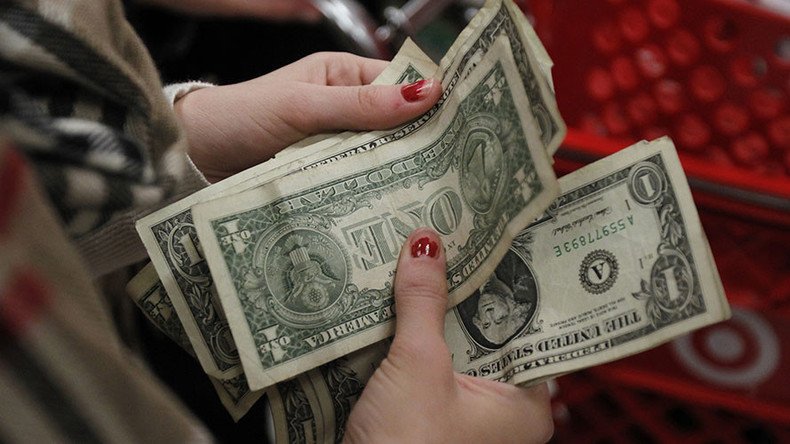Male-female wage gap responsible for greater depression & anxiety in women

Women on less pay than their male counterparts suffer depression nearly two and a half times as much as men, with their susceptibility to anxiety being more than four times that of men the same age who have similar qualifications, reported a new study.
Differences in men's and women's depression were previously thought to be mainly gender-related. But according to researchers from New York's Columbia University, disparities in psychiatric disorders actually arise from “unfair treatment.”
As a matter of fact, women in the United States working full-time year-round are paid 79 cents for every dollar paid to men, according to US Census Bureau data.
The Mailman School researchers, who scrutinized data from 22,581 working US adults aged from 30 to 65, came to the conclusion that the consequences of their wage gap extend beyond the expected social frameworks.
“Our results show that some of the gender disparities in depression and anxiety may be due to the effects of structural gender inequality in the workforce and beyond,” Jonathan Platt, a PhD student in Epidemiology and lead author of the paper, published in Social Science & Medicine, said on the university's website.
“The social processes that sort women into certain jobs, compensate them less than equivalent male counterparts, and create gender disparities in domestic labor that have material and psychosocial consequences.”
Surprisingly enough, when women’s income was greater than their male counterparts, their odds for having anxiety or depression was almost equivalent to men.
According to Platt, the disproportionate rate of anxiety and depression diagnoses in women is not just about material values. As a rule, women spend more time on domestic roles than men, and it gives them an added burden that can lead to anxiety and depression. Besides, there's an insidious psychological process that pushes women to blame themselves for different expectations around their jobs and how they're compensated, researchers explain.
“If women internalize these negative experiences as individual-level issues, rather than the result of structural discrimination, they may be at increased risk for depression and anxiety disorders,” says Platt.
“Our findings suggest that policies must go beyond prohibiting overt gender discrimination,” says Katherine Keyes, assistant professor of Epidemiology and senior author.
“While it is commonly believed that gender differences in depression and anxiety are biologically rooted, these results suggest that such differences are much more socially constructed than previously thought, indicating that gender disparities in psychiatric disorders are malleable and arise from unfair treatment,” she added.
Paid parental leave, affordable childcare, and flexible work schedules could ease some of this burden, Keyes says, noting that more research into understanding the ways in which discrimination plays a role in mental health is required.
“Greater attention to the fundamental mechanisms that perpetuate wage disparities is needed not only because it is unjust, but so that we may understand and be able to intervene to reduce subsequent health risks and disparities.”















